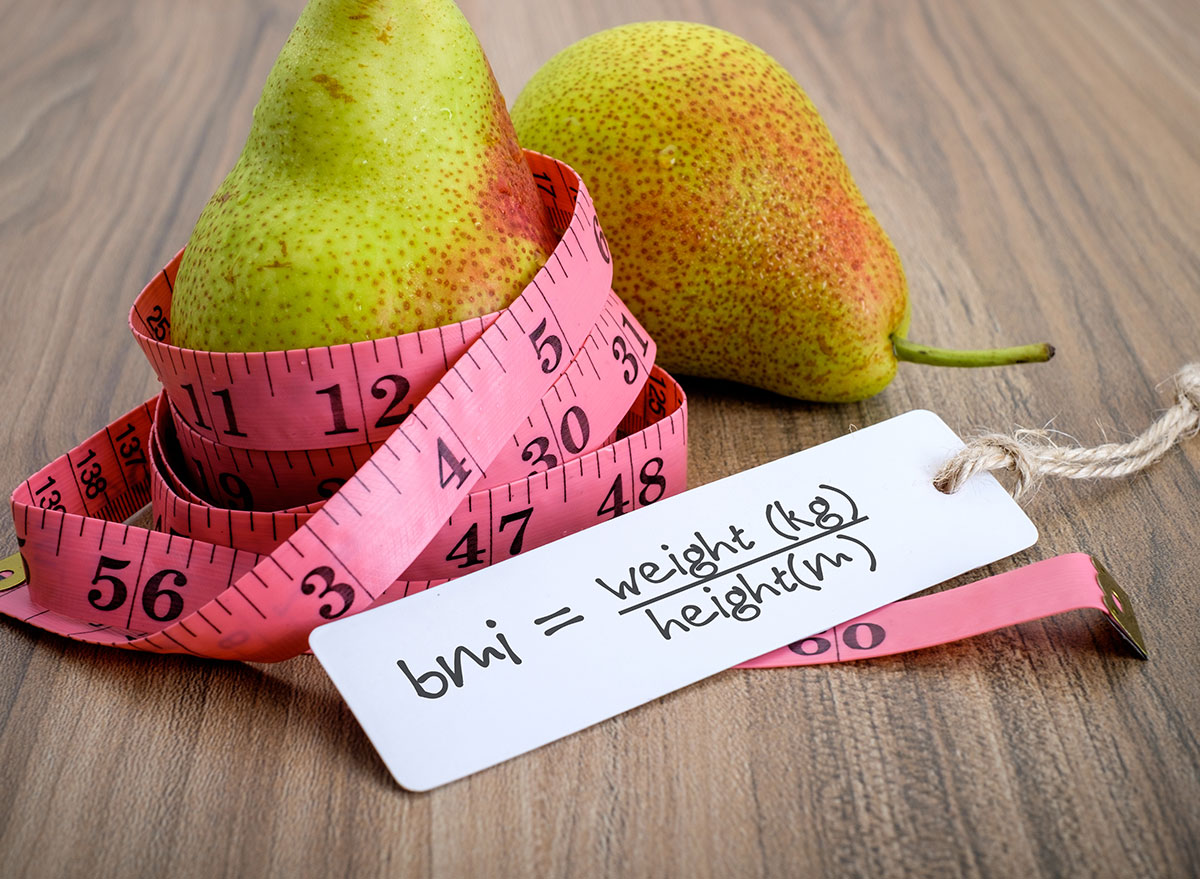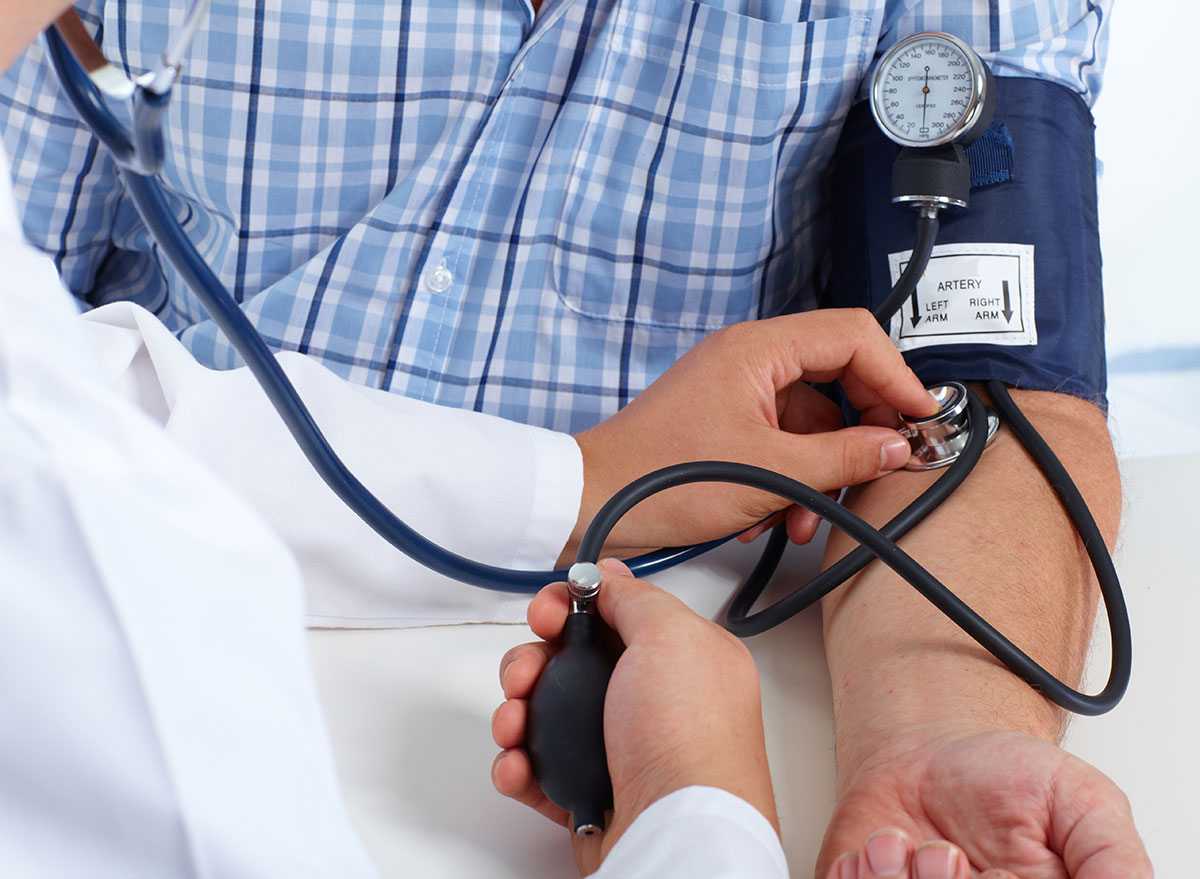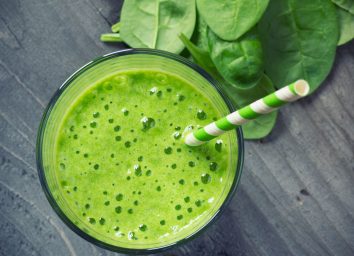7 Major Health Secrets President Trump’s Physical Will Tell Us

Last year, President Donald Trump’s physical was made public for the world to observe and analyze. His physician proclaimed that he was in excellent health, but other doctors and health experts have said otherwise.
We will say this: While his physical last year didn’t show anything terribly alarming, it did, in fact, indicate that he has some improvements to make. His weight and cholesterol levels are perhaps the two factors of most concern—both of which propel past what’s considered healthy. Other measures could be indicative of precursors to chronic illness, namely cardiovascular disease.
White House press secretary Sarah Sanders has said that Trump will get a physical again this year, but she did not mention if the results of this year’s physical exam would be made public.
We did some analyzing for ourselves and compiled what we thought are the main takeaways from last year’s physical. We explored how Trump could be at risk for various health problems if he has neglected to establish positive lifestyle changes over the past year since his last physical exam.
We’re curious to see the results—if they’re released publicly—for this year’s so we can compare because you can learn a lot of telling information from the report. Here are the seven major health secrets President Trump’s upcoming physical might just tell us this year.
Is Trump obese?

This question may be the most important of them all. Is Trump technically obese? We turned to last year’s BMI for the answer. To clarify, BMI is the measurement of one’s body fat in comparison with their height and weight. BMI is used to determine if an individual is underweight, at a normal weight, overweight, or obese. While it’s not the most accurate measurement (it does not account for muscle mass, which is why muscular athletes are often deemed overweight by the measure), it does give a good sense of how healthy a person is, especially someone who has low muscle density, like Trump. Remember, he’s 72 years old, so he’s not exactly in his “muscle-building” prime anymore.
According to his presidential physical from January 2018, Trump weighed in at 239 pounds, standing 75 inches (or 6′ 3″). This would mean that his BMI is 29.9, which is the highest number on the overweight classification and just 0.1 away from hitting the obese marker at 30. In a Washington Post article released shortly after Trump’s physical was made public, Navy Rear Adm. Ronny L. Jackson, who serves as the official physician to the President, said he had plans of helping Trump lose 10-15 pounds through a combination of diet and exercise. We’ll see if that plan held true if and when the results of this year’s physical exam are shared with the public.
Does Trump have high blood pressure?

Oftentimes, a person who is deemed overweight or obese is more susceptible to having other health issues, such as high blood pressure. Despite Trump’s nearly obese BMI measure, as of last year, he did not have hypertension—the clinical word for high blood pressure. However, it’s important to note that his blood pressure score doesn’t fall exactly into the heart-healthy range, either.
His blood pressure score of 122/74 mmHg actually falls within what the American Heart Association classifies as the “elevated” range, which is the step before the first stage of hypertension. For perspective, the elevated range of systolic blood pressure (the top number) spans from 120-129. According to the AHA, systolic blood pressure is the measurement that tells doctors just how much pressure your blood exerts against the artery walls each time your heart beats. Individuals whose blood pressure looks similar to that of Trump’s are at a higher risk of developing hypertension if steps aren’t taken to lower it. How can Trump lower his score? According to the Mayo Clinic, devoting 150 minutes to exercise each week, as well as swapping in whole grains, vegetables, fruits, and low-fat proteins for processed foods and fatty meat and dairy products can help reduce levels.
If Trump’s blood pressure continues to rise, what new complications could he face?

As we already discussed, Trump’s blood pressure score last year fell right within the elevated range, making him a candidate for developing hypertension. Let’s say his diet and exercise routines have not changed, and perhaps, got even worse this year. If you follow him on Twitter or Instagram, you likely already have an idea of his unhealthy eating habits stemming from his fondness for fast food. Did you know his favorite meal from McDonald’s is nearly 2,400 calories?
So if he has not made any positive modifications to his diet or attempted to exercise, his blood pressure score could have climbed into stage 1 of hypertension. In this preliminary stage, doctors are more apt to push for changes in a patient’s diet and exercise regimen and even possibly prescribe medication to keep levels at bay so that it doesn’t progress into something more serious, like causing a heart attack.
Hear that Trump? We all know exercise isn’t your favorite (he has said that on the campaign trail he viewed rallies as a form of exercise), but engaging in at least some kind of physical activity weekly won’t kill you—in fact, it will likely save you.
Are Trump’s cholesterol levels healthy?

Trump is a steak enthusiast—in fact, he may as well be considered a connoisseur of sorts. The President had formerly been the proprietor of his own line of steaks that took after his namesake. With that being said, he loves to eat steak—always well-done with a side of ketchup, mind you—and often at that. Red meat tends to pack a large amount of cholesterol, especially fattier cuts. It’s no surprise that his cholesterol levels were high when it came time for his last physical.
According to the Cleveland Clinic, a low-density lipoprotein (LDL) score, which is the artery-clogging kind, that falls within the 130-159 range is considered borderline high. Last year, Trump’s LDL score clocked in at 143 mg/dL, which is smack dab in the middle of the borderline high range. Also noted in the documents from his physical was that he has a medical history of hypercholesterolemia—the clinical term for high cholesterol—and that he is currently being treated for it with 10 milligrams of a drug that specifically works to lower it. Imagine what his cholesterol would be if he just cut back on foods that are chock-full of the stuff? Jackson said that Trump’s overall cholesterol levels had risen from 169 mg/dL in 2017 to 223 mg/dL in 2018. This giant jump in a matter of just one year removed him from the healthy range of cholesterol (below 200 mg/dL) and placed him in the borderline high range (200-239 mg dL).
Is Trump eating a diet that’s lower in fat and carbs, as his 2018 presidential physician last year suggested he do?

Here’s what the doctor noted in Trump’s physical last year: “He would benefit from a diet that is lower in fat and carbohydrates and from a routine exercise regimen.” This would ultimately enable Trump to shed some weight off of his waistline and put him at a lower risk of developing chronic disease, namely cardiovascular and Type II Diabetes.
Trump’s fasting glucose levels last year of 89 mg/dL, do in fact fall within a healthy range. To back it up a step, measuring fasting blood glucose levels, or blood sugar levels, is a great way to measure if one falls within the prediabetes category, which is the step just before diabetes. According to the most recent National Diabetes Statistics Report from the Centers for Disease Control and Prevention, some 48.6% of Americans aged 65 years and above had prediabetes.
A healthy range for fasting blood glucose falls below 100 mg/dL, whereas someone with prediabetes would clock in between 100-125 mg/dL. A person who has diabetes, of course, would then have a score of 126 mg/dL or higher.
Let’s be real though: With Trump’s poor dietary habits and lack of exercise, it’s not unreasonable to predict that his blood fasting glucose levels could have risen within the last 365 days, as his cholesterol levels certainly sky-rocketed.
Is Trump exercising like his physician recommended, despite his apparent hate for it?

By now, it’s quite clear that the president needs to have made some serious lifestyle changes in order to ensure longevity, or at least to get him through the end of his presidency. As we already discussed, his physician recommended he institute more exercise into his daily routine. But from the sounds of it, exercise is not one of Trump’s favorite activities, despite making claims he was “always the best athlete.” In the same article that’s referenced above from the Washington Post, Jackson had said that Trump wasn’t very enthusiastic about including more exercise into his everyday schedule, but was more than willing to make necessary changes to his diet.
Just how much does the President despise exercise? Apparently, when he plays golf, a quintessential presidential sport—but a low-intensity one at that—he scoots around in his golf cart between holes instead of getting some cardio in by walking. For comparison, Business Insider had reported last year that former President Barack Obama did a 45-minute combination of weight training and cardio workout every single morning during his eight years in the White House. Similar to Trump, late President George H.W. Bush also played golf, although he added a touch of cardio to the sport by engaging in a version of the game referred to as speed golf, which entails sprinting in between holes in order to beat the opponent.
Is Trump’s heart actually healthy?

According to the New York Times, though Dr. Jackson said the President’s cardiac health was “excellent,” he also said that he has “nonclinical coronary atherosclerosis.” What, exactly, is what? According to Mayo Clinic, “Atherosclerosis refers to the buildup of fats, cholesterol and other substances in and on your artery walls (plaque), which can restrict blood flow.” It can also be caused by, among other things, obesity and high cholesterol.
Dr. Jackson also said that Trump does not have heart disease, but considering Trump is almost at an obese BMI, has high LDL levels, and well-documented poor diet and exercise patterns, these could all be feeding into that nonclinical coronary atherosclerosis his physician noted—and later down the line, that could actually lead to heart disease.
Maybe Trump isn’t in as pristine cardiac health as his physician formerly pronounced, and because he still has time left to serve as President, it might be time he start to change his ways.








